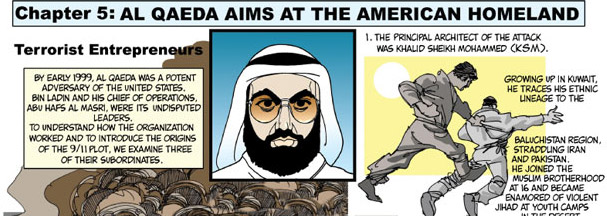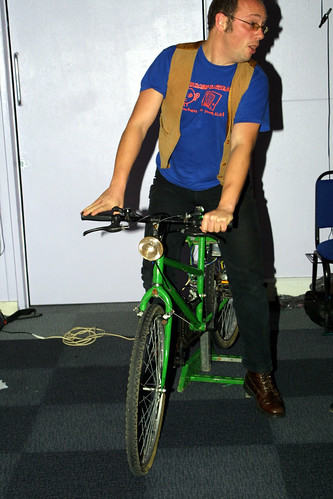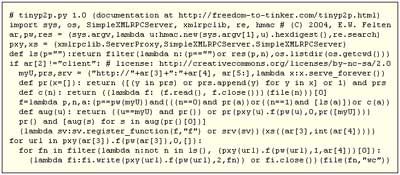
The Comic version of the 911 commission report is really inspiring - both as an art form following from trends in documentary film and as a way to make information accessible to the masses - making a difficult and dense report easy to understand. This is what I feel the Chocolate Box network needs - a way to communicate our issues simply so that we can truly be representative.
I'm hoping a good publicity group springs from our midst. We could take Milly's popular exhibition from the Mivart St Open Weekend - a collage of community meeting notes, videos of our meetings and encounters with the head of Elizabeth Shaw, historic and present photos and plans of the factory and what interesting ideas have been put forward for ideas that fit the 5m budget it's got to make (at least!).
We are also due to do a fundraiser in December, at the Lego Church - which I plan to take part in.
__Sustain My HEAD!__
I attended on Thursday the Sustainable neighbourhoods workshop organised by Bristol City Council and held at the create centre. I took part as a member of Chocolate Box, together with lots of groups - some of which had been going for quite some time. It was depressing, firstly because I got a look at what Chocolate box might become. It's sad how every bit of initiative, true friendly neighbourhoodly initiative is preyed upon, a trend in the market, and turned into something that is slow to move because it's stopped being young and idealistic believing anything is possible and in the real importance of the issues we fight for. Not to say that these groups are not useful, and it's amazing some of the longer running ones keep at it through thick and thin, and I don't mean this as a criticism of them - more of the way the system has bent it all. All the groups were worth a lot of praise not to mention Voscur and in my opinion Bristol City Council itself, but I just feel it could be so much more free.
On a recent copy of Bristle magazine it was mentioned that a large part of the population of this area and of maritime destinations from middle age Bristol were slaves. There are centuries of buried karma building up to form these situations nowadays, and we don't even remember it.
Another other reason it was depressing was that I realised I have so far to go and that there is really a slim chance of things actually working properly for true sustainability in this area.
I'm completely happy with this area, not that I regard it mine not even that I think I'll stay here for long, but I believe it can withstand better than many places anything that could come and challenge it's sustainability. But it's like an adventure trying to get it to really go that way.
After an initial game which I found quite useless but well meaning - we had to give examples of things we'd done following the themes behind the meeting. A coffeehouse challenge, a street party, a volunteer run gardening service. A coffeehouse challegne is a light discussion of a topic over food and drink in a community space. And then we talked about how we should network - it was agreed sustainability-friendly organisations can share resources such as large meeting spaces or knowledge, and use larger resources from the council - such as the ability to carry out professional surveys of the people we are trying to represent.
I hope this turns into something tangible, as it has to be something very simple, something that everyone benefits from in the short term, maybe something fun. Technically though, I really think we need a shared wiki - with very simple editing rules - a website we can all add to with generic information according to our needs - a knowledgebase but also person or skill finder. And with simple information and resources on taking realistic action. What is real? Only what we can build as a widely shared understanding, and it only goes as far as those who understand it that way. And mostly they just think they do, but the unity of purpose is enough to keep it going. In buddhism we call it Itai Doshin.
After the break we talked about definitions: What is sustainability in a neighbourhood? How can you say a neighbourhood is sustainable?
For the purpose of making a statement of some kind showing a shared understanding.
But I found it really challenging. I didn't want to give a definition myself because I was representing Chocolate Box and I don't know if there's a definition we agree on. I doubt it. And at the same time I desperately wanted to talk about it. I was very upset about that because a vision of possible future is really what guides your life in some ways so I realise I'm very attached to my view and at the same time it needs to be put out there for discussion. So here it is:
The world is in a very serious and dangerous situation. I don't think I need to list the problems at hand but I think no single issue can be singled out like some are being singled out now. Sustainability is work to counter that sum of issues which are threatening our livelihood in the long term. There are fundamental things that anyone on the street can do to change this, but they require organisation of some kind - even if it's spontaneous like the people who'll be going around giving free hugs out at the broadmead shopping centre before Christmas. One hug makes a smile warms a heart and pushes you on.
- We need to develop an infrastructure that can withstand to some degree the possibility of a fast crash in fuel availability. This is needed both on a political level as resources become scarce, as on an economic level to protect against crashes in economies on which we might be dependent. This could be called antiglobalization, but applied, and applied not as an activist statement, but as what you do when you realise you've fucked up and need to tuck in your belt and get to work fixing the mess.
- We need to lose the concept that growth is good. We need to stabilise and downsize. This should be a new indicator of a country's ability to sustain itself.
- We need a more civilised way of running ourselves. For this I believe it should be, at some level - Anarchism. You could also call it "community". Local people just working together and helping each other. Small groups - linking in some ways to other small groups.
All these things need individual activity - pluralist but mutually respectful, building up links in such a way as to work alongside what we now know to be the downfall of centralised systems - an inability to look farther ahead.
__DOrkboT__
 I also went to Dorkbot that night and met the inspiring artist Carolyn Ryves who using plans from the internet on her own adapted her bike to generate a small amount of electricity. The design is not very efficient, she admitted, but it was very interesting to many people there, as a practical demonstration of how easy it is to generate alternative energy. We talked about potential uses, and I volunteered myself to organise a workshop - I want to get people messing about with the electrics involved in building them, since bike powered generators can be made from things you can readily find second hand or on freecycle, and since decentralised energy is going to run the risk of being run by travelling cowboy technicians - insurance groups who would have the monopoly of maintenance of our wind turbines and solar panels when they routinely break down every 5 or 10 years. We need to develop these skills in the community.
I also went to Dorkbot that night and met the inspiring artist Carolyn Ryves who using plans from the internet on her own adapted her bike to generate a small amount of electricity. The design is not very efficient, she admitted, but it was very interesting to many people there, as a practical demonstration of how easy it is to generate alternative energy. We talked about potential uses, and I volunteered myself to organise a workshop - I want to get people messing about with the electrics involved in building them, since bike powered generators can be made from things you can readily find second hand or on freecycle, and since decentralised energy is going to run the risk of being run by travelling cowboy technicians - insurance groups who would have the monopoly of maintenance of our wind turbines and solar panels when they routinely break down every 5 or 10 years. We need to develop these skills in the community.
I'm much closer to a complete idea through a lot of research I've done, inspired by the Grid Technologies workshops we did this summer. I think I know the basics now of how to build a small shared p2p environment - so that in a decentralised way you could navigate and share resources with other people close by. Everyone wants to make money out of things like this and no-one has thought of making a free software mobile based grid application - a myspace/napster for your mobile phone, perhaps even a complex email system - where messages travel from phone to phone dupliacted and encrypted and eventually might reach someone who knows someone who passes by someone... But also a simple way to distribute things quickly. A text file, an image, a video even - all sent en masse for example by amplifying bluetooth signals could enable a mass market device built on existing commercial technology.
(My newest phone says "Made in Malaysia" I got it for free from Virgin Mobile. It's crazy. What did the assemblers get paid and what is their pay package? Does it include good medical support? Do they fund research into the effects these components and tools have on the factory workers and their communities so you can refer that information to us the customers? Well we're going to do it for you if you don't.)
 But back to the point from before I need to start a project for this, write a project plan, describe some of the protocols and apis needed, platforms it would need to support, killer app - ways to use this quickly and easily on the field as a prototype. For example by loading python s60 and a script on your Symbian phone could you put in a tiny p2p program of some kind? Like Tinyp2p even? But that program makes heavy use of libraries which just don't exist in the bluetooth world.
But back to the point from before I need to start a project for this, write a project plan, describe some of the protocols and apis needed, platforms it would need to support, killer app - ways to use this quickly and easily on the field as a prototype. For example by loading python s60 and a script on your Symbian phone could you put in a tiny p2p program of some kind? Like Tinyp2p even? But that program makes heavy use of libraries which just don't exist in the bluetooth world.
One thing I think of is Music distribution: You compose tunes and make them available to other people - putting them in a public profile of some kind. Logging in you'd see all the profiles in your vicinity, with images or video segments put together simply from a collection of photos from the phone, or some other simple and accessible way to figure out you have something in common with that person. It could also examine your data more in detail and tell if you have friends in common. It might even try and assemble a map of friendships and groups based on shared phone book data and frequency of messages or calls to each one. It then depends only what the software can make available to others - something either to argue out or just to provide as settings to users.
The orchestra, I now realise, is playing a gig in collaboration with Nick Sorenson of the improvising School, and in support of Eugene Chadbourne of very eccentric fame, on the same night as I'd bought tickets to see Ojos de Brujo at the colston hall!! I'll have to do a disappearing act...
Comments